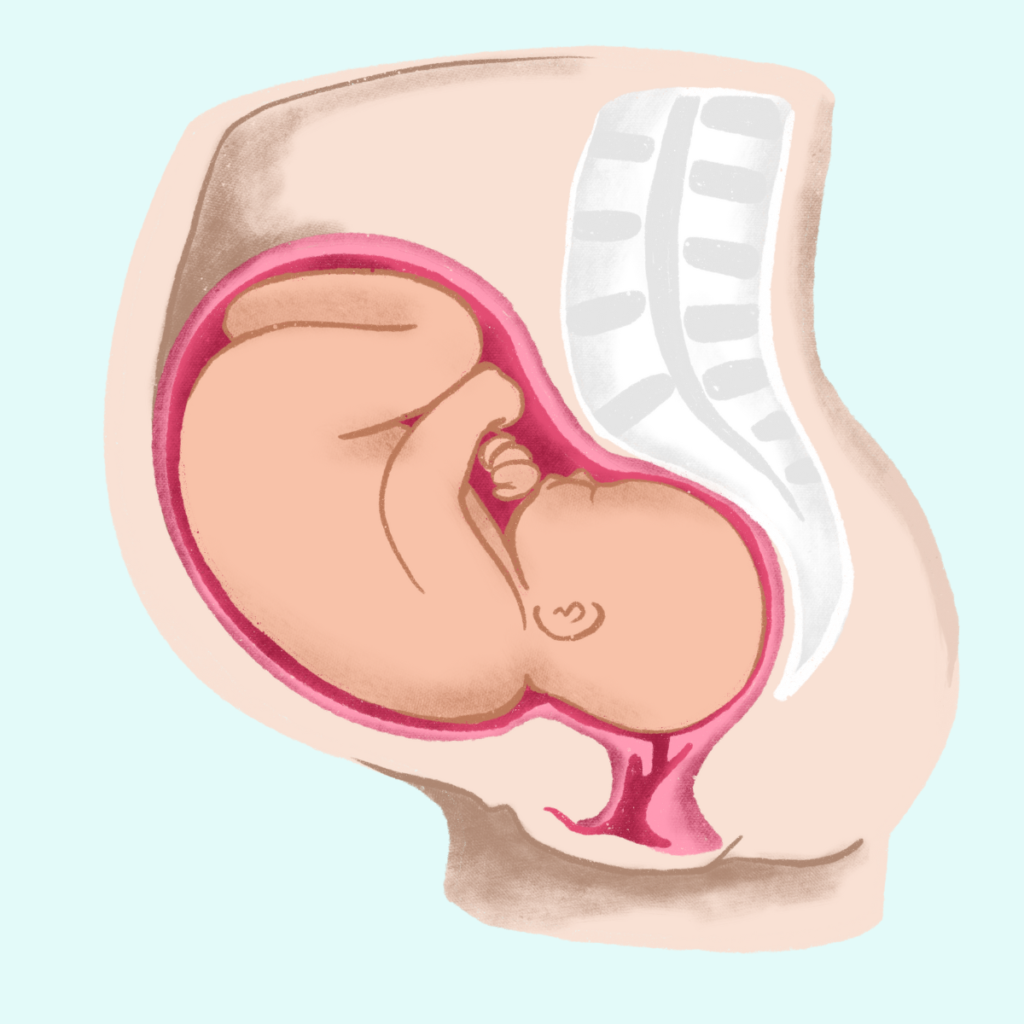How much control do we have over childbirth?

The belief that storks bring babies undoubtedly provided a sense of comfort. If that were the case, in today’s times with the possibility of next-day delivery with just a simple click, it would undoubtedly generate a sense of having control over the arrival of a baby. However, we confront this belief once we realize that not only do storks not bring the baby, but also that we lack absolute control over the birthing process, even though the baby is in our own body.
But how much control do we have over childbirth? Let’s start with the basics: what is control, and what do we feel as humans when we lack it?
The sense of control is crucial for humans as it brings predictability, security, and empowerment to their lives. When people feel in control, they experience less stress and anxiety because they believe they can influence outcomes and handle challenges effectively.
Moreover, having a sense of control enhances psychological well-being by fostering feelings of competence and mastery. When people feel they control their lives, they experience more positive emotions, satisfaction, and fulfillment.
In essence, the sense of control promotes resilience, adaptability, and overall psychological health in humans.
How does our body react when we lack control?
When we lack control, our body can respond with increased stress levels, leading to physical symptoms like a faster heartbeat, shallow breathing, tense muscles, and hormonal changes. These reactions are part of our body’s natural stress response, preparing us to deal with threats or challenges.
Feeling out of control can also cause anxiety, frustration, and helplessness, affecting both our emotional and physical well-being.

How might this lack of control affect childbirth?
During childbirth, this lack of control can heighten stress and anxiety, potentially disrupting the natural labor process. Stress hormones released in response to feeling powerless can make it harder for the body to manage labor pains and may prolong labor. Additionally, it can lead to a less satisfying birth experience and increase the likelihood of medical interventions like pain relief or cesarean section.
Conversely, when individuals feel a sense of control and autonomy during childbirth, they are more likely to have a positive and empowering experience, resulting in better outcomes for both the mother and the baby. Therefore, promoting a sense of control and autonomy during childbirth is crucial for ensuring optimal birth experiences and outcomes.
Trust, Is trust sufficient, or do we need more?
How can we promote a sense of control during childbirth despite not having absolute control over every step of the process?
These days, many birth gurus try to convince us that the key to having the birth we imagine is trust. Trust in ourselves, trust in our baby, trust in our abilities. And indeed, there are many reasons to trust ourselves. We’ve already accomplished the incredible feat of growing a baby, which is truly amazing! We can trust in our babies because they are our teammates in this process, and they are naturally predisposed to do their best. Most births occur without any complications, similar to how we see it in other mammal species in nature.

Can you trust in the outcome of something over which you have no complete control?
Yes, it is possible to trust that childbirth will unfold into a beautiful experience as you imagined, even if you lack control over it. Trusting in the outcome involves having confidence that things will evolve as they should, despite being unable to influence or control every aspect of the situation. It often requires accepting uncertainty and believing in the natural process.
How does knowledge contribute to increased acceptance of uncertain situations like childbirth?
Understanding or knowing a situation can often lead to increased acceptance. When we know more about birth, we tend to feel more comfortable and confident in facing it. Knowledge provides us with insights, explanations, and a sense of control over what is happening, even if we can’t fully control the outcome. With knowledge comes clarity, and with clarity comes acceptance. So, now we are ready to face the next step…

The idea that using certain childbirth preparation techniques will accurately determine the type of birth you will have is not only erroneous because there are many factors beyond your control, but it also gives the birthing person a sense of dissatisfaction that they could have done more under their control, but did not.
This feeling generates sadness, stigma, and frustration for the new mother, feelings that correspond very little with reality, because the way you bring your child into the world determines very little the incredible effort you have made, your strength, the kind of mother you will be, or your capacity as a woman to create life. Selling an idealized view of childbirth techniques that yield a specific result is immoral and irresponsible.
What can you not control during childbirth?
We can influence the way we give birth by preparing ourselves, but no one can guarantee that the outcome will be exactly as planned. Knowing this and being honest about the reality of birth, with its beauty and uncertainty, we should be able to approach our childbirth preparation with a more honest, open, and positive mindset. In reality, we don’t have constant control over things in life, no matter how much effort we put into it.
What can you not control during childbirth? Some aspects may vary depending on the type of birth.
- The exact timing and place of when labor begins.
- How your body responds to the process of labor and childbirth.
- Unexpected complications or changes in your birth plan.
- The length and intensity of labor.
- The position and condition of the baby during labor.
- Some external factors, such as hospital policies, health providers or emergencies.
What can you control during childbirth?
Perhaps in number, it seems like we have less control than the control we have over childbirth, but the truth is that one of the things we can control is crucial for the childbirth experience to be positive.
What you can control:
- Your mindset and attitude towards childbirth. Despite not having complete control, what we can control is how we feel about that sensation, and how we manage that feeling. Learning to find the positive side of each experience, being flexible, loving ourselves, and recognizing our effort beyond valuing it based on how close we were to our expectations. Creating realistic expectations, being grateful, and realizing that even though we don’t have everything under our control, we have done an incredible job!
- Pain management options, such as breathing techniques, relaxation methods, and medication choices if available.
- Your communication with healthcare providers about your preferences and concerns.
- Preparing yourself physically and mentally through prenatal education, exercises, and relaxation techniques.
Are we honest when talking about childbirth?
The tendency to sell a single way of giving birth by doing A, B, or C is often influenced by the countless and frightening stories circulating about childbirth experiences.
It’s truly amazing how many people are willing to share their experiences, empower others, and feel passionate about pregnancy and childbirth.But can we professionalize a personal experience and speak about birth options and other birth-related topics solely based on our own experiences?

Is selling an exclusive type of birth a business? I think so. Many people who advocate for or talk about certain childbirth preparation techniques as the perfect potion for a type of birth may have had a wonderful personal birth experience and want to share it so that others have the same opportunity. Conversely, they may have had a really negative experience and want to prevent it for other women. Both intentions are good, but a personal experience, from my point of view as a midwife and not as a mother, does not give you the complete ability to speak about childbirth with total objectivity.

In many parts of the world, if you want to work in the field of childbirth and pregnancy, you’ll need to attend university. Therefore, it’s accurate to say that pregnancy, childbirth, and related fields are studied, becoming professions where a degree is essential for practice beyond your personal experiences.; midwives specialize in it and know that no technique guarantees a single outcome.
Childbirth must be approached with passion, but also with knowledge, honesty, and experience gained from the diversity of different journeys you’ve had the honor to be part of, not just personal ones. Selling a childbirth technique where there is only one point of view with a single outcome as a type of birth is a business, it is unrealistic, and it is unethical.
So, always choose qualified professionals like midwives as companions in your childbirth preparation, who speak about childbirth from the experience of many women, not just their own experience.
On the other hand, are women’s negative experiences real? Of course, they are, and I am deeply sorry about it. These women need to be heard, need support, and need to feel that they did not do anything wrong. However, their experiences do not necessarily reflect how yours will be.
How can we reassure ourselves when feeling anxious about childbirth and uncertain about the birth experience?
- Educate yourself from trustworthy professionals or reliable sources. Learn extensively about childbirth, including its various stages, pain management options, and potential complications. Understanding the process can help ease fears and boost confidence.

- Practice Relaxation Techniques: Incorporate relaxation techniques such as deep breathing, visualization, mindfulness, and progressive muscle relaxation into your daily routine. These practices can help reduce anxiety and promote a sense of calmness.
- Establish a Support System: Surround yourself with supportive individuals, such as your partner, family members, and friends. If it is possible, try to know more about your midwife who can provide encouragement, reassurance, and practical assistance during pregnancy and birth.
- Communicate Your Concerns: Talk openly with your healthcare provider about your fears and anxieties regarding childbirth.
- Practice Positive Affirmations: Use positive affirmations and self-talk to replace negative thoughts with encouraging and empowering messages.
Be honest with yourself, show kindness to yourself, be positive, set realistic expectations, avoid comparing yourself to others, embrace your own journey, and remember that you have nothing to prove because what you’re already doing is amazing!
